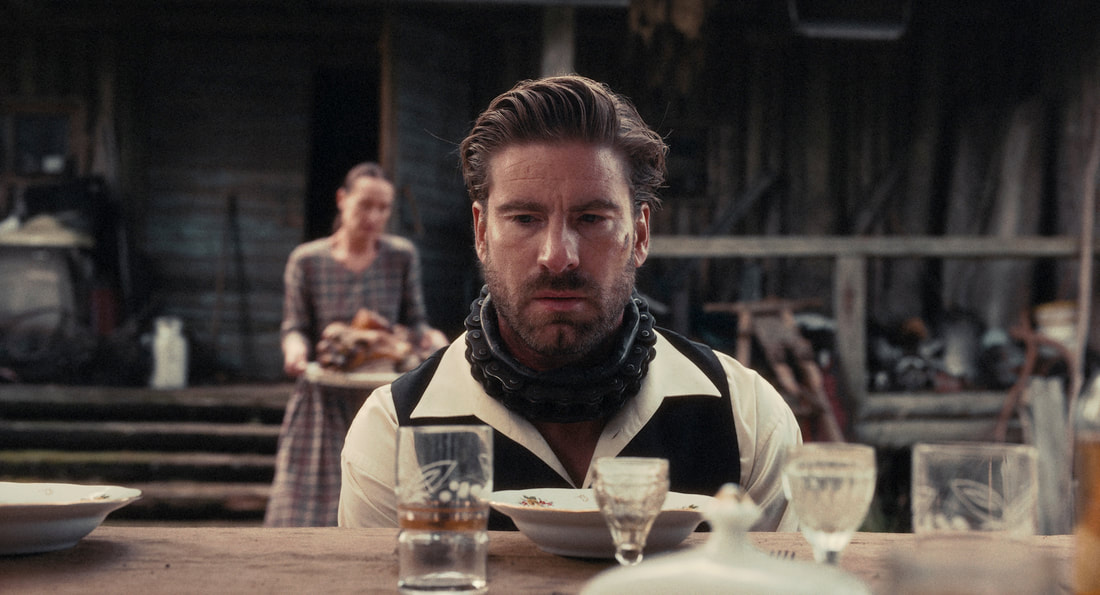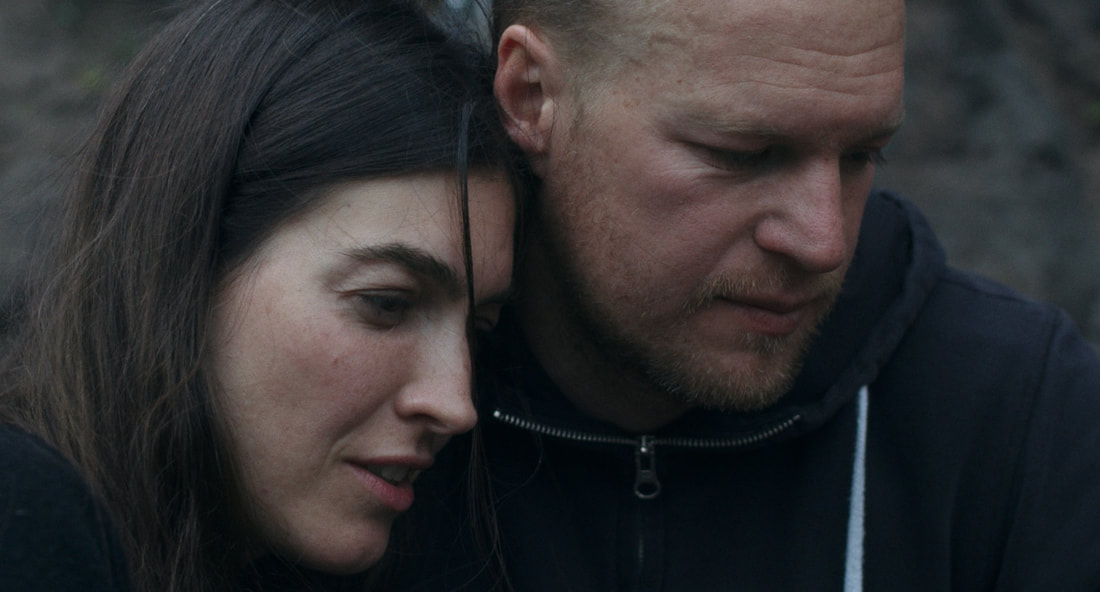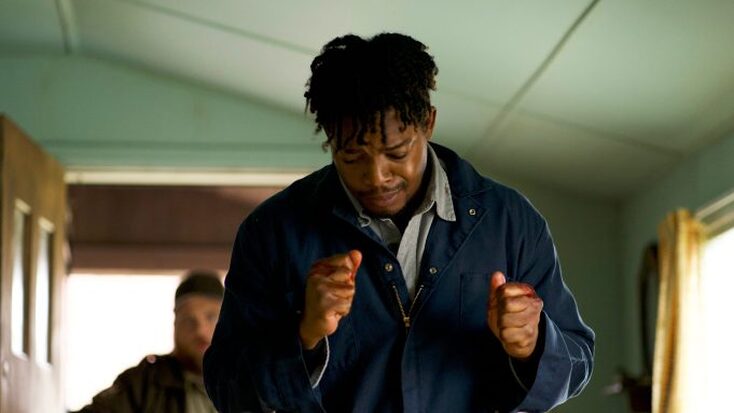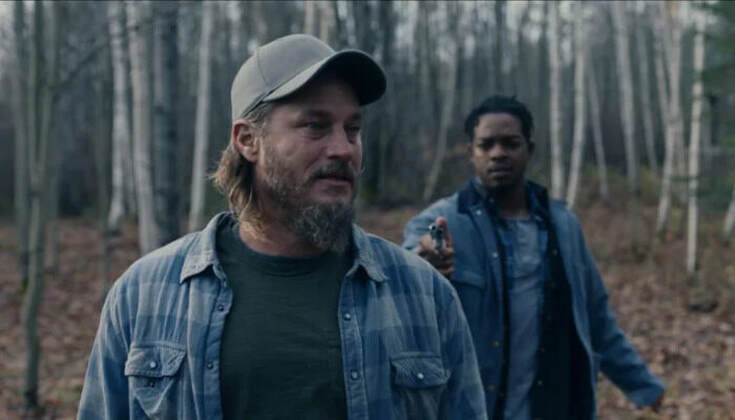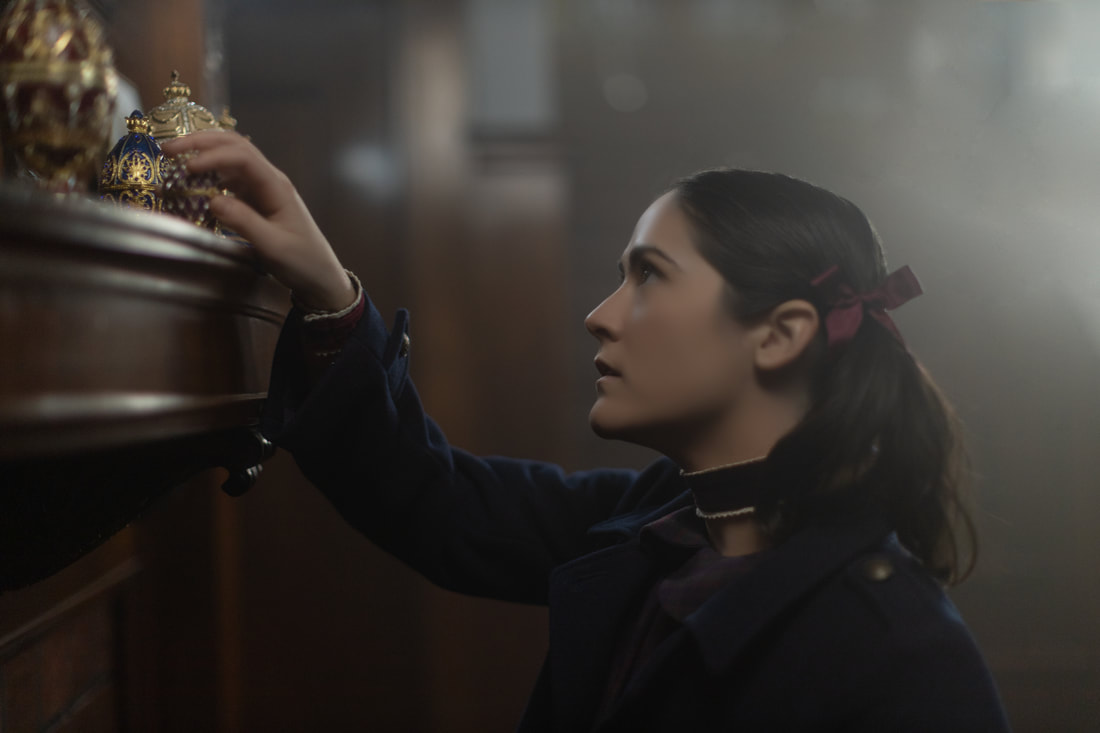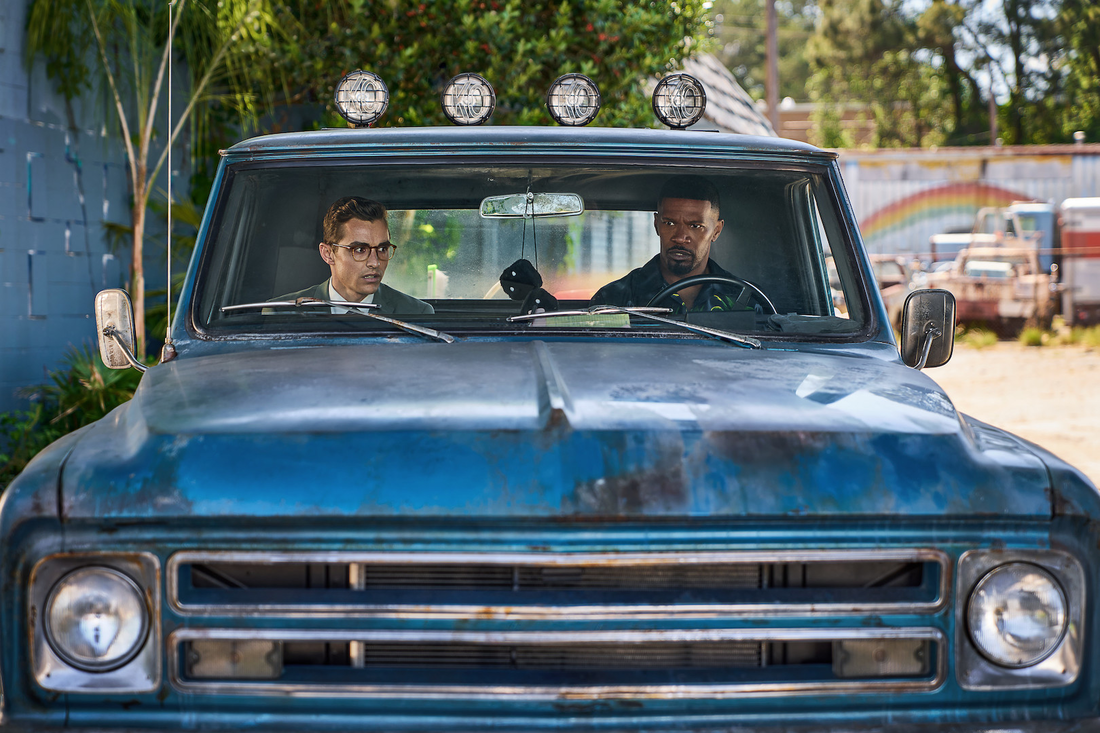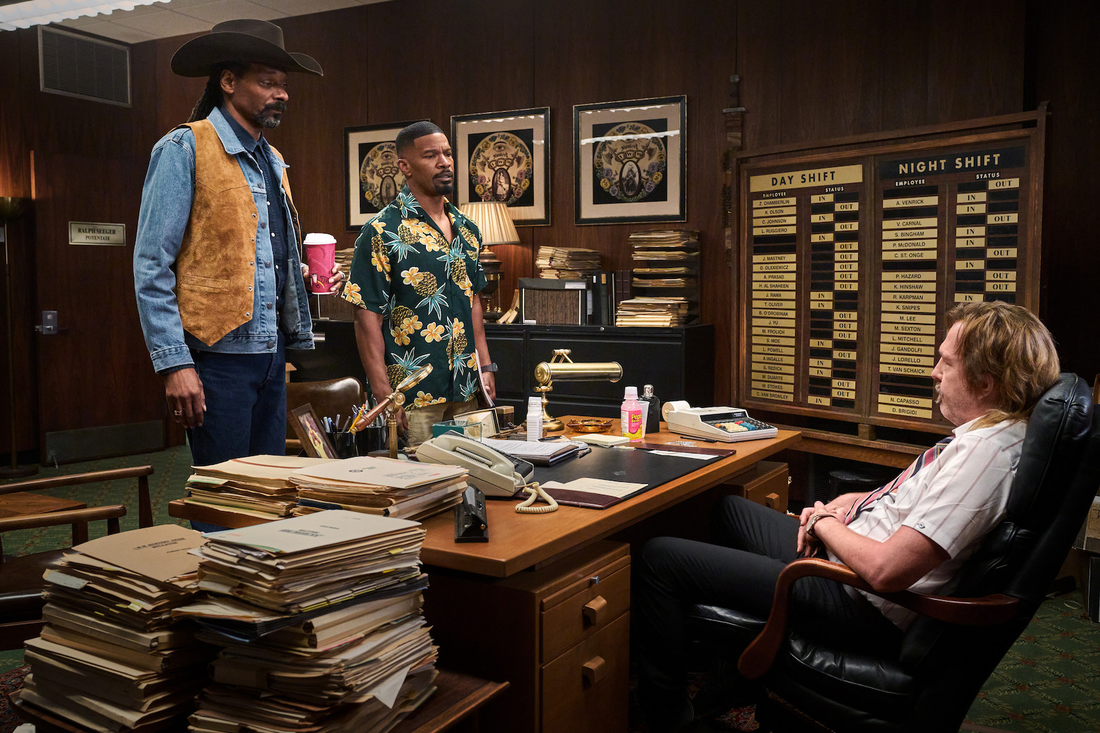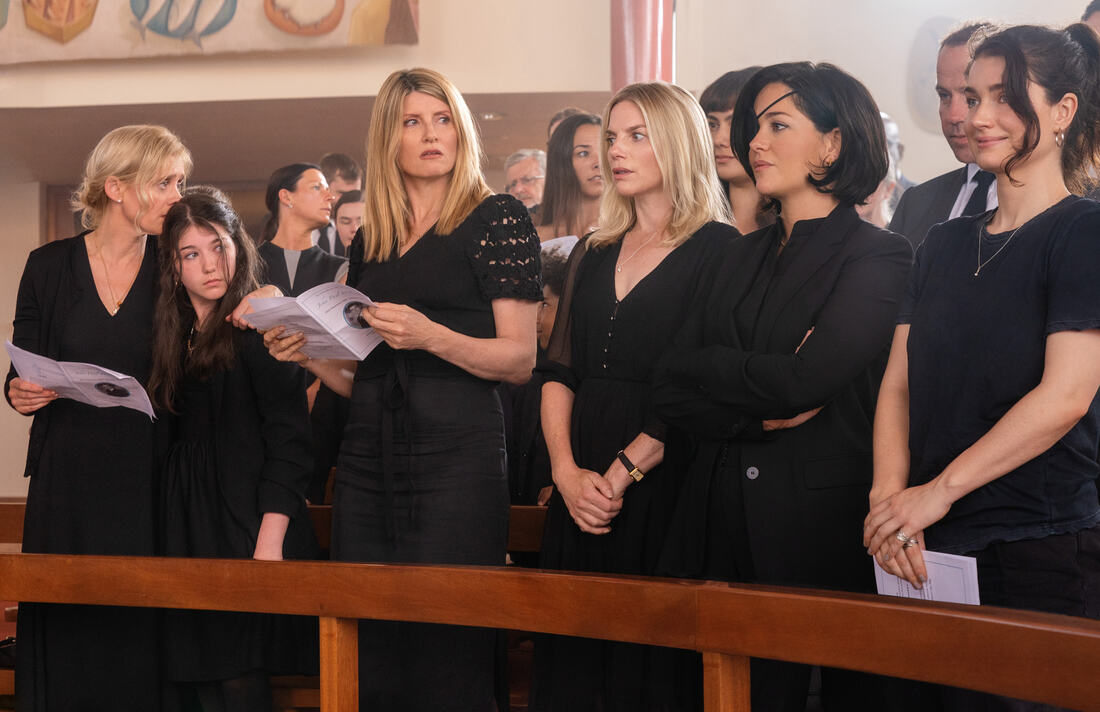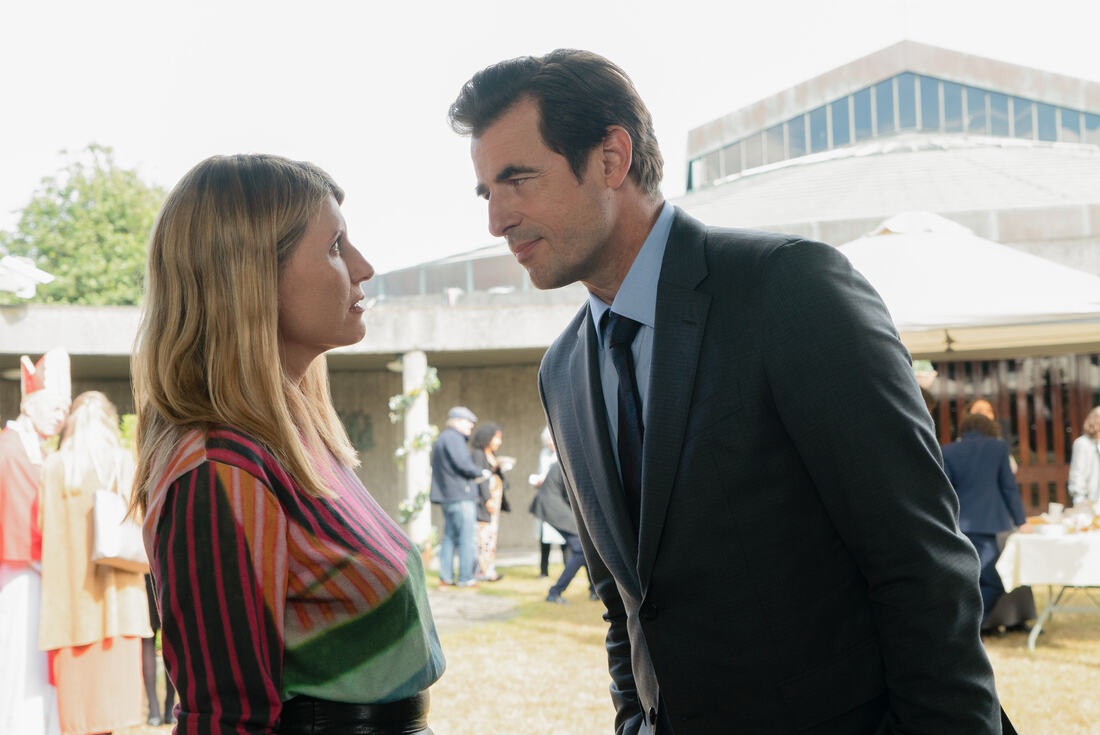|
Review by Adam Donato Coming to theaters at the end of this summer is one of the best documentaries of the year. With a litany of awards nominations and wins this year already, it will be exciting to see what kind of splash The Territory will make at the box office. Alex Pritz had co-directed a few documentary shorts, but this is his first feature length documentary solely directed by him. The film follows an Indigenous group of people living in the Amazon rainforest as they try to protect their land from an association of Brazilian farmers who seek deforestation. Will this important story make waves at the box office this weekend and through its expansion? The first thing to mention about this documentary is the visuals. It amplifies the pro-environmental message immensely to see the beauty of the land they call home, especially when it shows the contrast to the land that had been burnt down and cleared out. It's no surprise here that National Geographic would have the technical aspects of their documentary all buttoned up. Not only does this documentary invoke sympathy for the land, but for the Indigenous people as well. The Territory mostly follows an environmental activist who has dedicated her life to protecting the land and its people. There’s also a lot of time dedicated to the new leader of the group elected by the elders. Listening to the perspective of the youths is heartbreaking as it has been made clear this has been a longstanding issue. The elders speak about how in the past they pursued war with invaders, but now are different times. The ability to experience their struggle first hand justifies this story being brought to light. The more people that become aware of this problem, it will hopefully open some eyes.
Another person who is given the spotlight is the leader of the association of Brazilian farmers. The Territory does a good job of making its point and taking a side, but doesn’t shy away from showing the antagonist’s perspective. By the end of the story, it’s easy to understand why they’re doing what they’re doing. It’s selfish and destructive, but in a cruel world, they’re just trying to survive. That’s another example of how heart-wrenching this story is. So many people are being negatively impacted in the documentary, not to mention the worldwide consequences of deforestation. The Territory is a story about empathy and values. This true story is overwhelmingly important and depressing. Don’t let that downer description dissuade you from checking this one out, as it showcases the power of the human spirit in a way that almost restores faith in humanity. Be sure to check this one out in theaters and expect to hear this movie continued to be in the awards season conversation. The Territory hits theaters on August 19. Rating: 5/5
0 Comments
Review by Sean Boelman
Aik Karapetian’s Squeal starts out as if it is going to be some sort of “wrong place, wrong time” horror movie, and while it has some elements of that, there is something much more bizarre and intriguing going on in Karapetian’s head. The result is a bizarre dark comedy that’s fascinating, even when not everything comes together.
The film follows a traveler who, after accidentally hitting a pig while driving on the road in Eastern Europe, finds himself captured and enslaved by a pig farmer. With some definite tones of Jeunet in terms of how it combines whimsy with darkness, the unique tone of this movie is what makes it work so well. Granted, the film does feel like Karapetian and co-writer Aleksandr Rodionov had a cool concept in mind and built a script around it. For the most part, it works, but you can tell which scenes are more developed and which are the connective tissue being used as filler. However, the good scenes are extremely memorable and are able to carry the movie. It is clear that Karapetian is trying to draw a parallel between the protagonist and the pigs on the farm, and the rich history of symbolism of the creature gives him a lot to work with. However, the purposeful ambiguity sometimes goes a bit too far and comes off as unclear, as this film seems to be saying a lot without taking much of a firm stance on anything.
The protagonist isn’t all too heroic of a character, but that works well within the context of the movie. Obviously, we are generally rooting for him over the farmers that have enslaved him, but he’s also not the low-hanging fruit that the hero of the proletariat rising up against the institution. The delineations here are much less clear-cut.
Kevin Janssens performance as the protagonist definitely stands out. For one, it is a very physical role that requires him to get very down and dirty. And yet, throughout the entire ordeal, he has to maintain his dignity and strength to communicate this character’s fundamental perseverance, and he does so quite successfully. The film also thrives from a stylistic standpoint. Karapetian opts for a dark fairytale vibe — something that is not too uncommon in European art cinema — and just makes everything feel about ten times grimier. It’s the type of movie that feels very gross and disgusting despite not being particularly graphic in nature, and it works. Squeal doesn’t pull off everything it sets out to do, but the things it does achieve are pretty impressive. Even if Karapetian’s dark fable leaves more questions than it answers, it’s an interesting watch nonetheless. Squeal hits theaters and VOD on August 19. Rating: 3/5
Review by Sean Boelman
Sometimes, independent filmmakers are able to get a big enough star attached to their project in a cameo role to boost its profile despite it being otherwise unnoteworthy. That is the case with Dominique Braun and Terrence Martin’s Get Away If You Can, a baffling attempt at profundity that often feels needlessly confusing.
The movie follows a couple with a broken marriage as they set out on a journey to rekindle their relationship by sailing across the open sea, only for further disillusionment to brew when one refuses to explore a mysterious island. If that seems like a random combination of words that doesn’t make much sense — it doesn’t work much better in execution. When stripped down to its barest aspects, this is effectively a pretty straightforward melodrama. And yet there is a nonlinear structure, cutting back and forth between the couple’s constant bickering in the present and advice they had received in the past from various parties, that makes the story much more convoluted than it needs to be. If your idea of fun is watching a bickering couple yell at each other for an hour and twenty minutes, you might find some enjoyment here, but a majority of audiences will find this generally unpleasant. It isn’t even an argumentative film in a stressful way — it’s just dull and uninteresting, and gives the audience no characters to particularly like.
The biggest name in the movie is Ed Harris, who gets a few scenes as a bigoted jerk who gives terrible advice to the main couple. It’s a role that is entirely unnecessary and bafflingly bad. Riley Smith has even fewer scenes, but at least the purpose of his character isn’t to offend. The filmmakers play the main two roles themselves and do a terrible job at it.
The movie also manages to give off extremely mixed messaging, making it difficult for any audience to really take away anything from it. Everything that is being depicted on screen is extremely toxic, and yet, there is nothing here that really condemns the behaviors of anyone, leaving a problematic taste in viewers’ mouths. In a way, the film is an exercise in style-over-substance, but that is particularly inexcusable when the style isn’t even that good. There are a couple interesting camera shots, but more often than not, they feel out of place, such as a choreographed sex scene that feels more like it should be in a music video than a feature film. The music is also often laughably mismatched to the movie. Get Away If You Can is one of those films that you can tell was a passion project for the filmmakers, but it just did not pan out. I’m sure they are happy that they got to make a movie with a couple of big stars, but the end product is very hard to watch. Get Away If You Can hits theaters and VOD on August 19. Rating: 1/5 Review by Paris Jade A man with a mental disability is accused of murdering his sister and goes on a journey to find out the truth and clear his name in Delia's Gone. Despite a great performance by Stephan James and supported by a cast of none other than Marisa Tomei and Paul Walter Hauser, Delia's Gone was surprisingly underwhelming nonetheless. The film's main shortcoming is its plot, which is just alright. It's sometimes a bit frustrating as you watch Louis (Stephan James) struggle to find his sister's killer. The beginning is a bit slow, and for the first fifteen minutes, you don't really have to pay attention to anything happening until his sister is dead. After that, the film picks up, and you're thrown into a complete mess. There are people after Louis the entire time, and no one seems to answer his questions. Yes, it is trying to build suspense and give it a sense of mystery; however, you know what's going on, and as you have to sit there and watch Louis try and put the pieces together and question people, you can't help but yell at your screen and tell him exactly what happened to his sister. I'm not sure if the writers intended it to be that obvious, but it makes the experience a little less enjoyable. You also get incredibly frustrated with Tomei and Hauser's characters, the people after him. They are the officers of the small town tracking down Louis to ensure he doesn't do anything wrong. You just want them to leave him alone because they continue to make things worse. That, however, is most definitely on purpose. It just adds to the already annoying scenario. Even though the plot is just okay, I will give credit where it is due and praise Stephan James for his performance of Louis. He disappeared into the role and did a great job. Everyone should be on the lookout for what he does next. There were a lot of cinematic moments that felt absolutely right and somehow made you feel good during such a frustrating film. Delia's Gone isn't a must-watch movie. I can't picture anyone dying to see this. However, if you're into mysteries and might have already seen all the really good ones, give this a gander and take your chances. It won't be your favorite, and you might get a little frustrated, but it's not a bad movie.
See Delia’s Gone in theaters on August 19th and VOD on September 9th. Rating: 3/5 Review by Cole Groth Syndrome K is a documentary about a doctor who created a fake disease, Syndrome K, to save hundreds of Roman Jews from being exterminated during the Holocaust. This harrowing story of heroism stands out to me as one of the most fascinating stories shown in the past year, and this documentary sheds important light on past heroes. It's rather unfortunate that some bafflingly amateur production decisions distract from the seriousness of both the topic at hand and the film as a whole. Running at just under an hour, this documentary has some serious issues with pacing. It's hard to emphasize just how important it is to research the topic of a documentary before making it, an issue that is revealed very early on in the film. Instead of focusing on the titular disease of the film, director Stephen Edwards gives an in-depth commentary on how the Catholic church handled its relationship with the Nazis, how the Pope wasn't able to do much about intervening in the Holocaust without becoming a target himself, and other reasons why action against the Nazis wasn't a possibility for the Romans. This is frustrating because while it is undeniably interesting, it distracts from the point of the documentary. Instead, we don't get to hear about what Syndrome K is until about halfway through the film, and it almost seems like not enough research was done on the fake disease, which leads to a half-baked and slightly unhelpful documentary. Syndrome K was a disease created by doctor and anti-fascist activist Adriano Ossicini. The Roman Jews desperately trying to escape the grip of the SS were able to do so by being admitted to the Fatebenefratelli Hospital with a diagnosis of a highly contagious yet extremely fictitious disease. Believing the Jewish race to be inferior and impure, many Nazi officers were hesitant to do their due diligence and follow up on deporting the Jews to concentration camps because they did not want to contract this disease. This summary, provided to me through two paragraphs of an article on the disease, is about as in-depth as the documentary goes. Adriano's son gives most of the commentary on the events from his dad's perspective, but it's simply not enough detail to justify this being a standalone documentary. Speaking of perspective, the documentary's weakest part, without a doubt, is how the interviewees are dubbed over. Since most of the participants interviewed were Roman Jews themselves, they had to be dubbed in English so the audience could understand. It's almost comical how the people who perform the dubbing speak with these ridiculously thick accents. I had a hard time focusing on the gravity of the situations being described because the only audio being heard sounds like American actors trying their hardest to sound like they're Roman. The late Ray Liotta provides the narration for the other portions of the documentary, but it's not that much better. Some graphics look lame, which contributes to my overall feeling that this is a poorly produced film about an extraordinarily interesting topic.
Fans of unique historical events should check this film out if they haven't heard about the truly fascinating story of Syndrome K. However, if you're a fan of documentaries in general, this one doesn't stick out as anything but an interesting story told poorly. If there was a higher budget and more time to put this together, it could've been a necessary watch for any history fans. Still, I just can't recommend it fully because it isn't quite good enough to hold a candle to the heroes of the Holocaust like Adriano Ossicini. Syndrome K is now available on VOD. Rating: 2.5/5
Review by Sean Boelman
The 2009 horror/thriller Orphan was generally maligned upon release, but due to a somewhat decent twist, survived over the years and has even been reevaluated in some circles. Thirteen years later, the “fans” can finally see the follow-up they’ve been waiting for in terms of the equally bad prequel, Orphan: First Kill.
Set before the events of the first film, First Kill follows Esther, a thirty-year-old woman with a rare genetic condition that makes her look like a child, as she makes a daring escape from a mental institution by impersonating the missing daughter of a wealthy American family. It’s a pretty ludicrous story, but then again, so was that of the first Orphan. Weirdly, the movie really doubles down on the psychosexual aspect here, and it’s enormously uncomfortable (but not in a good way). It’s not that this film is glamorizing it, but it is still a plot device that seemingly goes too far for its own good. It’s definitely disturbing, although making something this off-putting for the sake of creeping out the audience is unwise. This movie is severely missing a character to whom the audience can become attached. With the original film, there is Vera Farmiga’s character that the audience roots for once the twist is revealed. While one would think that Julia Stiles’s character would be her analog in this movie, it doesn’t work out that way at all, and as a result, the film feels overly cold.
Fuhrman is the highlight of this movie, as she was in the original, and considering that she has aged in the more than a decade since the first film’s release, some impressive trickery had to be done to allow her to play the character again. Her performance is the right balance of wacky and creepy to make this bizarre premise work.
The tension between Fuhrman and Stiles is perhaps even better than that between Fuhrman and Farmiga in the first movie. Individually, Stiles is certainly playing it much too big. She tries to steal the show when this should very firmly be Fuhrman’s starring vehicle. The rest of the supporting cast doesn’t fare so well — especially Matthew Finlan, who is laughably bad in his role. The first act of the film is Esther’s escape from the mental institution, and while it’s fun enough to watch, it’s also largely forgettable. The second half of the movie, which is effectively a game of cat-and-mouse between Fuhrman and Stiles, is much more entertaining, but it’s also far more far-fetched. Orphan: First Kill is an attempt to capitalize on the supposed popularity of a horror movie that wasn’t all that good in the first place. Why they felt the need to make this movie over a decade later only to dump it unceremoniously, no one will ever know, but it’s not pleasant to watch. Orphan: First Kill hits theaters, VOD, and Paramount+ on August 19. Rating: 2/5 Review by Tatiana Miranda After its premiere at TIFF in 2021, the film Learn to Swim now comes to Netflix for its digital release. The movie is director Thyrone Tommy's debut feature, and it is co-written by him and Marni Van Dyk. With tonal similarities to Whiplash and Eternal Sunshine of the Spotless Mind, Learn to Swim follows the rise and fall of a relationship told through the spontaneous lyricism of jazz. Of course, Learn to Swim's strong suit is its music. With a mix of original songs and classics, the movie is an ode to the everyday working musician trying to make it big. As the main characters are introduced, they fall into their assumed roles: Dezi as the experienced and controlling sax player and music producer of Selma, who is a determined novice singer. Their arguments come through their work, with Selma aiming to be more than she is, and Dezi being the extremely talented but also incredibly passive musician that he is. Their struggles are represented through song and their individual performances, especially as Selma and Dezi attempt to create something representative of the two of them while still allowing room for the other person. Even the film's 1.37:1 aspect ratio has a nod to album covers and the color grade gives the silky, whiskey-colored look that succinctly matches the tone and music of Learn to Swim. The main character, Dezi, is the prototype of a highly talented and focused musician with a penchant for drinking and just generally making bad life decisions. Representative of his faulty headspace and clear nostalgia for past relationships, Learn to Swim jumps through Dezi's memories seemingly at random, slowly but surely telling the story of his and singer Selma's failed romantic relationship. Similar to hitting the shuffle button on a playlist, this movie is told through quick, out-of-order vignettes of Dezi and Selma's intriguing yet tumultuous relationship.
While this is a clever way to tell their story and a great representation of Dezi's unreliable narrator aspect since he is hopped up on pain meds for a majority of the movie, Learn to Swim's unique storytelling gets lost in the confusing jumble of moments, which almost require the audience to keep a notebook at hand in order to document the film's timeline. Unlike the movie's easy listening through its music, Learn to Swim requires the viewer's full undivided attention in order to properly understand what is happening, and even then, some of the character's motives and actions feel out of the blue. Learn to Swim is likely not for the average Netflix user, but it is nevertheless an artistic rendition of love lost and an accurate representation of the beauty of jazz that any film fanatic is sure to enjoy. Learn to Swim is now in theaters and on Netflix. Rating: 4/5 Review by Camden Ferrell 13: The Musical is a new musical comedy based on the Broadway musical of the same name that premiered in 2007. This movie is directed by Tamra Davis who has most recently directed episodes of shows like High School Musical: The Musical – The Series and Dead to Me to name a few. Featuring a predominately young cast, this movie boasts some amazing musical numbers that make it worth the watch even if everything in between is hit or miss. Evan Goldman is a Jewish teenager who is about to have his Bar Mitzvah. This is supposed to be a huge celebration with an amazing party for all his friends. The problem is that he is now moving from New York City to a small Indiana town where he doesn’t know anyone. Here, he is on a quest to come of age and make sure his party is memorable for everyone at his new school. The most important aspect of the movie is its music and its musical numbers, and it succeeds on both fronts. The songs aren’t complex or particularly clever with its lyrics, but they are extremely catchy and effective at progressing its story and developing its characters. The choreography is great, and the music is exciting and adorably charming throughout. The standout songs are the opening number “13” as well as “Opportunity”. Eli Golden leads the film as Evan, and he’s a charismatic lead that is quite capable for an actor his age. Many young viewers will resonate with his character and the struggles he faces. While all the young stars are talented in their own ways, I will say that I was particularly impressed with the performance of Frankie McNellis who plays Lucy. She takes on this mean girl trope with ease and delivers a great performance in her musical numbers and in regular scenes, and I sincerely hope we see more from her soon.
On a technical level, the movie doesn’t really aspire to be much, but it also doesn’t need to. The appeal of the movie is its relatable and simple story and talented young ensemble. Even though there are some adult stars, the movie makes them take a back seat to give the young cast a chance to shine. It puts a lot of faith in its inexperienced cast. It works delightfully in the musical sequences, and it becomes a little less consistent in regular scenes. Regardless, one must commend the young cast and their efforts. 13: The Musical is a harmless and quite enjoyable movie for theater fans, young audiences, and families. It has great themes and messages with wholesome characters that younger viewers will love. It may not be great, but one can’t help but be entranced by its simple and feel-good story. 13: The Musical is streaming on Netflix August 12. Rating: 3.5/5 Review by Paris Jade Pool cleaner by day, vampire hunter by night — Jamie Foxx returns to the big screen in this action comedy, Day Shift. Bud (Foxx) has a week to come up with the money to pay for his daughter's braces and school tuition. The very start of the film immediately grabs your attention, beginning with an extended action sequence of Bud fighting a vampire. It's an intense fight scene with bits and pieces of humor that keeps you engaged. As the story continues, you meet our antagonist and supporting cast. As Bud fights vampires and does his own busts, he's joined by Seth (Dave Franco), who has never been on the "field" and is terrified every minute. Franco truly steals the show and has excellent comedic timing. His chemistry with Foxx makes them a great duo, and their time together in the film is truly enjoyable. As for the other cast members, Snoop Dogg, as always, is a legendary person to watch on screen, and you can't help but love whatever character he plays in any film he is in. He brings his Snoop flair and makes the movie just a little bit better. A character you don't really see until the end of the film is Heather (Natasha Liu Bordizzo), who steals a bit of the spotlight in any scene she is in. Even with the few scenes she had in the film, I can't wait to see what she does next. You can tell she'll be an up-and-coming actress to look for. The main issue with this film is its main antagonist Audrey (Karla Souza). She seems to be your stereotypical Latina who, for some reason, says one random Spanish word in every sentence. She's almost like a low-budget Sofia Vergara without the accent. The editors also decided to put weird flashing subtitles anytime she spoke Spanish. If it was supposed to be comical or not, it just looks plain stupid, and they should have gone with something more normal-looking. The action sequences are the best part of this film, as the plot itself and the dialogue gradually get worse the further you get into the film. The ending ends just fine like any other action film can, with a good resolution for our main characters. The fight scenes are really what hold the movie together. Without them, this Day Shift would be quite bad, especially with how long it lasts. At least you can keep yourself entertained with that.
See Day Shift on Netflix on August 12. Rating: 3.5/5
Review by Sean Boelman
Actress and writer Sharon Horgan has partnered with Apple TV+ for a first-look deal, and the first series to come out of that is the dark comedy Bad Sisters. A fascinating take on a familiar formula, the series is both funny and surprisingly endearing, a solid crowd-pleaser that is genuinely intelligent at the same time.
The series follows a group of sisters who, tight-knit since the passing of their parents, find themselves torn apart when their brother-in-law mysteriously dies. And while this seems like a setup for a mystery, the intrigue doesn’t come from what you don’t know, but the bizarre way in which it unfolds. There are two storylines in the show: one set in the modern day as two insurance investigators look into the suspicious death of the brother-in-law, and the other following the sisters as they scheme to murder him. The dark comedy comes from all of the failed assassination attempts, each one of which gets more and more ridiculous in nature. The suspense in the show is a result of not knowing whether or not the sisters actually succeeded in committing the murder, or if it was just by freak chance that he died. But in the scheme of things, it doesn’t really matter. The more compelling aspect of the series is not the mystery, but the characters.
The dynamic between the sisters is written fantastically and is a large part of what makes the series so effective. Not only do we get fully invested in this sisterly relationship, but each of them is quirky in their own way and it makes them all relatable. Every viewer will have one sister that will resonate with them the most, and that just shows how well they are all written.
All of the actors in the entire ensemble are fantastic, but Eve Hewson and Sarah Greene likely give the most fun performances. However, it is the unit as a whole that is the real beating heart of this show. The chemistry that all of the actresses share with one another is fantastic and makes the more far-fetched moments believable. Yet somehow, the supporting cast manages to shine even brighter. Claes Bang yet again proves that he is one of the most underappreciated actors working today. He is absolutely detestable playing this despicable character, and it’s perfect. On the opposite side of the spectrum, Daryl McCormack is endlessly charming. Bad Sisters takes a decent premise and makes the most out of it to deliver a show that is much more nuanced than it sounds on paper. Fantastic performances and sharp writing make this one of the best new dark comedies of the season. Bad Sisters debuts on Apple TV+ on August 19 with new episodes streaming subsequent Fridays. Seven out of ten episodes reviewed. Rating: 4/5 |
Archives
April 2024
Authors
All
|
|
|
disappointment media
Dedicated to unique and diverse perspectives on cinema! |




